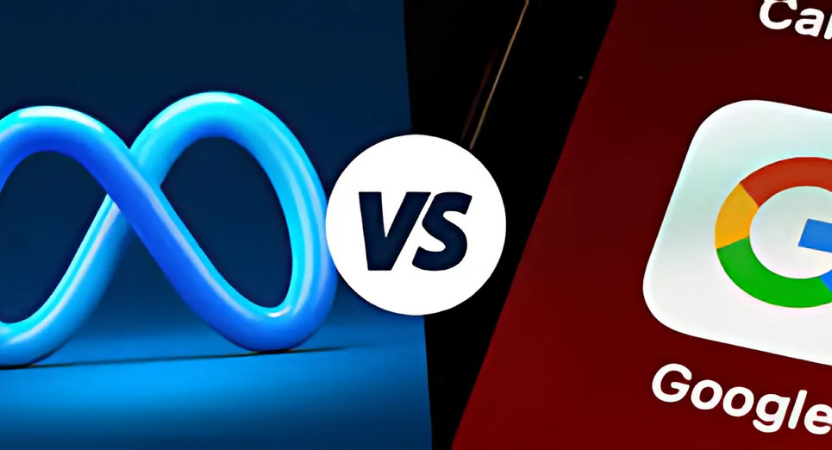If you’re running a business or learning through a digital marketing course online, mastering Google Ads and Meta Ads is crucial to grow your brand. Both platforms dominate the performance marketing landscape, but choosing the right one depends on your goals, audience, and budget. Whether you’re a beginner exploring a diploma in digital marketing or a brand owner managing paid campaigns, this guide breaks down the core differences and helps you make informed decisions.
Quick Summary
Choosing between Google Ads and Meta Ads can make or break your online marketing strategy. Both operate on bidding systems, where advertisers pay for clicks or impressions. But the way they target, engage, and convert customers differs significantly. This blog, ideal for students of the best digital marketing institutes in Gurgaon, outlines the key differences and helps you choose the best channel for your business.
Key Takeaways
- Core differences between Google Ads and Meta Ads
- Factors to consider when choosing an ad platform
- How to track and measure results effectively
Tips for students enrolled in a digital marketing certification course
Enroll in a digital marketing certification course with Digital CourseAI today and start creating campaigns that convert.
Digital CourseAI
Introduction: What Makes Each Platform Unique?
Google Ads helps you connect with users actively searching for your product or service. It’s keyword-driven and highly intent-focused. This means if someone types “buy running shoes”, your ad could appear exactly when they need it. That’s what makes Google Ads powerful for conversion-driven campaigns.
In contrast, Meta Ads (formerly Facebook Ads) are designed to create desire. You’re not waiting for people to search — you’re putting your product in front of users based on their interests, behaviour, and demographics. That’s ideal for brand awareness, engagement, and storytelling.
Students learning through a performance marketing course will understand how both platforms serve different roles in a full-funnel marketing strategy.
What Are Google Ads?
Google Ads is Google’s advertising platform that places your ads in search results, YouTube, Gmail, and websites across its Display Network. The model is PPC (pay-per-click), and advertisers bid on keywords. This model offers:

- High intent traffic
- Custom keyword targeting
- Strong ROI tracking
- Great for bottom-of-funnel campaigns
If you’re diving into a digital marketing course online, Google Ads is a must-have skill to drive sales-focused campaigns.
What Are Meta Ads?
Meta Ads (covering Facebook, Instagram, and Messenger) allow advertisers to reach audiences based on age, location, interests, and life events. Unlike Google, Meta targets users not actively searching, but who match your ideal customer profile. It’s excellent for:
- Brand visibility
- Product launches
- Audience engagement
- Retargeting campaigns

The platform offers multiple creative formats like image, video, carousel, and stories, offering more flexibility to tell a brand story. If you’re learning through the best online digital marketing courses, you’ll discover how Meta Ads excel at top-of-funnel awareness.
Factors to Consider When Choosing Google Ads or Meta Ads
1. Your Goals
- If you’re aiming for leads and conversions, Google Ads might be better.
- If your focus is awareness, traffic, or social engagement, Meta Ads lead the way.
2. Target Audience
- Google Ads targets users with high purchase intent.
- Meta Ads target users based on lifestyle and interest signals.
3. Budget
- Both platforms offer flexible budgets, but CPC on Google can be higher due to competition.
- Meta offers more impression-based visibility for smaller budgets.
4. Ad Creatives
- Google relies heavily on text and search terms.
- Meta Ads shine with images, videos, and stories.
5. Learning Curve & Resources
- Google Ads can be more complex. If you’re in a diploma in digital marketing, you’ll learn about keyword bidding. Quality Score and conversion tracking.
How Do You Track Results?
- Google Ads: Best for tracking conversions, clicks, ROAS, and search terms. It’s the gold standard in intent-based ROI measurement.
- Meta Ads: Tracks engagement, reach, impressions, and assisted conversions. It’s effective for long-term brand building, especially if you retarget users using Meta Pixel.
Both platforms offer integration with Google Analytics, making data analysis seamless for students from the best digital marketing institutes in Gurgaon.
Which One is Right for You?
| Criteria | Google Ads | Meta Ads |
| Best For | High intent, Search based Users | Interest-based awareness & Engagement |
| Pricing Model | CPC (Pay per click) | CPM or CPC |
| Learning Difficulty | Moderate to Advanced | Beginner to Intermediate |
| Conversion Tracking | Strong (Via Google Analytics & Tag Manager) | Decent, especially with Meta Pixel |
| Creative Flexibility | Low (Text – Heavy) | High (Videos, Carousels, Reels, Stories) |
Want to Learn Both?
The smartest marketers combine Google Ads and Meta Ads in their strategies. That’s why most digital marketing courses online now offer modules on both platforms. Whether you’re pursuing a performance marketing course or a full diploma in digital marketing, mastering both platforms helps future-proof your career.
If you’re looking to upskill, check out the best online digital marketing courses that include practical training on Google Ads, Meta Ads, analytics, and campaign strategy. Many of these are offered by the best digital marketing institutes in Gurgaon with certifications and job support.
Final Thoughts
To succeed in today’s online world, understanding the strengths of both Google Ads and Meta Ads is essential. From building awareness to converting leads, each platform plays a unique role. Businesses and students alike must evaluate their goals, resources, and audiences to create high-performing ad strategies.
Whether you’re running a campaign or studying through a digital marketing course online, learning how to master Google and Meta Ads will give you a competitive edge.

